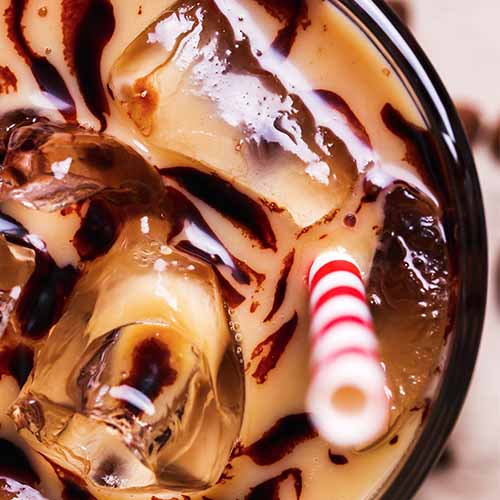
For years a debate raged on over the relationship between diet and acne and whether certain foods can actually affect your skin or cause acne. Many had their suspicions about specific foods like chocolate, which turned out to be accurate because sugar directly affects sebum production and can contribute to clogged pores, inflammation, and acne. But, more recently, our attention has turned to another ingredient that has been an American favorite for decades: Cow’s milk.
Many Americans don’t even think twice about adding milk to their coffee or iced coffee. It’s a habitual action that makes sense to our palates — milk lightens a dark brew, takes away some of its bitter sting, and provides a creamy, rich taste.
Unfortunately, and especially if you have acne-prone skin or are sensitive to lactose and dairy, cow’s milk could be messing with your skin’s oil production, Dermatologist Dr. Rachel Nazarian of Schweiger Dermatology, told Dermstore.
“What you eat changes the consistency of the sebum (or oil) on your skin, making it more likely to clog up pores,” Nazarian says. “Milk, because it contains natural growth hormones, has also been suggested as a trigger for acne by altering the delicate balance of hormones on the skin.”
But before you kick your milk to the curb, hold onto that carton: there may be one major caveat to consider.
One study published in the Journal of the American Academy of Dermatology actually backs the link between dairy and acne — with the understanding that not all milk is created equal.
Researchers studied a group of teenagers who experienced moderate acne and observed how their skin was affected by cow’s milk consumption. It turns out those who drank milk had more breakouts — but the type of milk they drank had everything to do with it.
“Consumption of low-fat/skim milk, but not full-fat milk, was positively associated with acne,” the study concluded.
So, while you’re shaving off calories and fat by choosing skim or low-fat milk, it may not be doing your skin any favors.
Keep your skin radiant and clear and enjoy that cup of coffee by choosing whole milk over skim or low-fat options or opting for almond or coconut milk or dairy-free creamers--just be careful and read labels because some creamers can be filled with sugar, which is also aggravating to skin.
“My advice is to stick to a healthy, low-fat, low-sugar diet and to stay hydrated throughout the day,” Nazarian says. “Although changing your diet may not completely cure your acne, it may lessen flare-ups and make it easier to control with additional medical treatment.”


